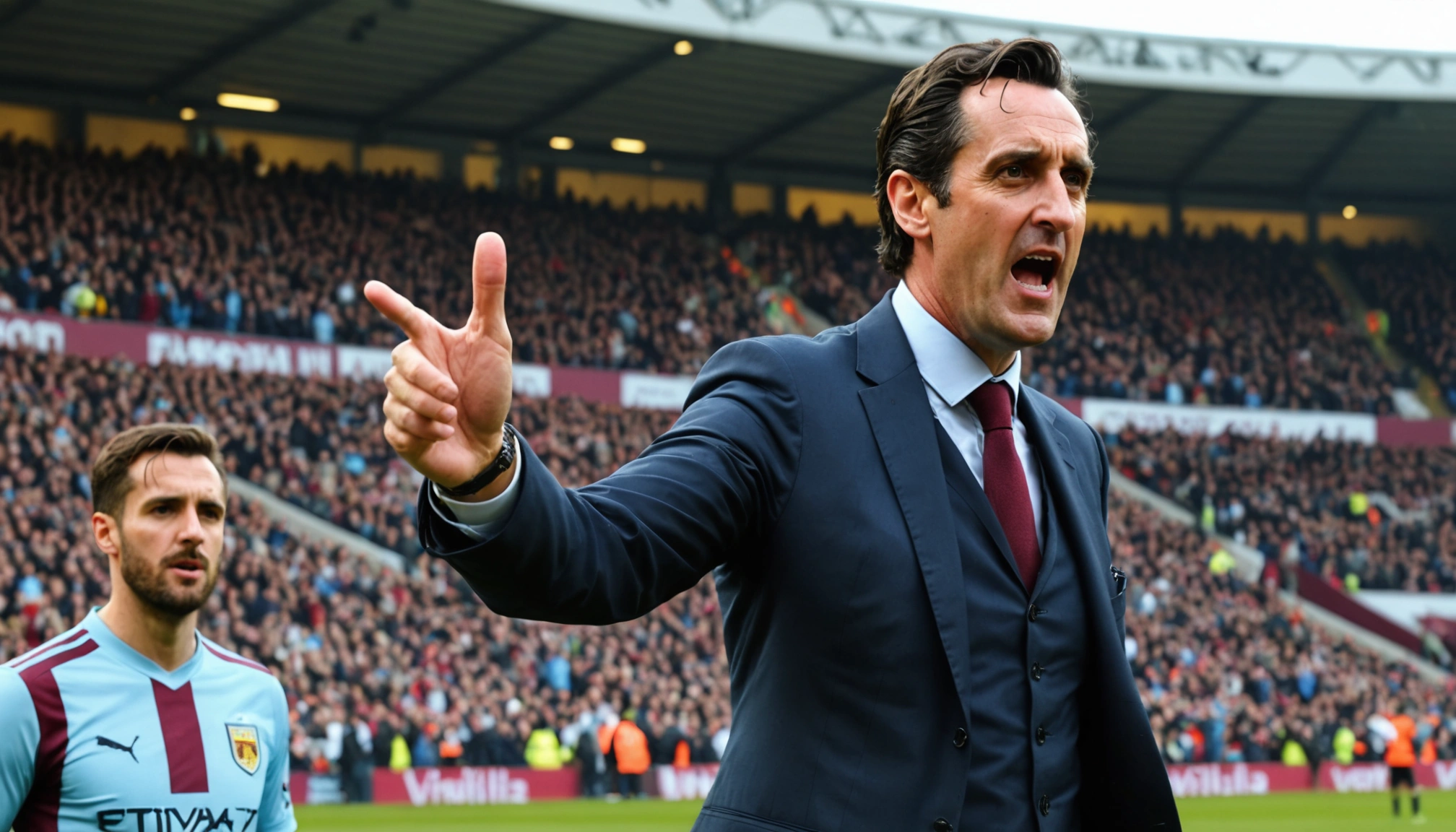Was Emery Right To Call Out His Players After Villa's Draw?
Unai Emery labelled Aston Villa players 'lazy' after their draw with Sunderland. Was this public critique a clever tactic or a risky move? Explore the impact here.

By Editorial
Introduction To Emery's Post-Match Comments
After Aston Villa’s 1-1 draw against Sunderland, manager Unai Emery made headlines by publicly calling his players "lazy" in defence. This rare and frank criticism sparked debate across football circles and raised questions about its impact on team morale and performance. In this article, we analyse the implications of Emery’s comments, the risks involved, and what history tells us about such managerial tactics.
Why Emery Chose To Call Out His Players Publicly
Managers often face a dilemma between addressing issues privately or taking a more direct public stance. Emery’s decision to accuse his team of laziness in the post-match interview was unorthodox but perhaps aimed at jolting his squad into action. Publicly acknowledging the defensive lapses puts pressure on players to respond and improves accountability.
Emery said, "We were lazy sometimes in defence. When we conceded, we were lazy." While this bluntness may upset some players, it also signals the seriousness of the situation. In football, where mental toughness is key, such straightforward feedback can sometimes be the wake-up call a team needs.
The Risks And Potential Backlash From Public Criticism
Despite the potential benefits, calling out players in public is a risky strategy. Former goalkeeper and pundit Shay Given expressed concerns on Match of the Day that players may take such criticism the wrong way, damaging team spirit and trust in the manager.
Players often expect criticism behind closed doors, where it can be handled sensitively. Public rebukes risk alienating key squad members, especially in a team like Aston Villa, which is rebuilding under Emery’s leadership. Poor morale can lead to inconsistent performances and hamper efforts to climb the Premier League standings.
Examples Of Public Criticism Impacting Teams
Looking across football history, there are mixed results from managers publicly criticising their squads. For instance, José Mourinho’s outspoken comments at Chelsea sometimes sparked a revival in form but on other occasions led to player-manager rifts that undermined the club's harmony.
Conversely, Jurgen Klopp is known for his measured public critiques, which often motivate players without creating lasting tension. Emery’s bluntness is somewhere in between, and only time will tell if it galvanises Villa or sows discord.
Case study: Arsenal under Emery
During Emery’s previous tenure at Arsenal, he occasionally used public criticism to address defensive frailties. Initial improvements were seen, but repeated public reprimands sometimes wore thin with the squad. This suggests that while such tactics can produce short-term gains, they must be balanced with supportive measures.
Will The Criticism Lead To A Change In Form?
Ultimately, the success of Emery’s approach depends on the players’ response. A self-reflective squad might use the criticism to tighten defensive discipline and improve concentration. Aston Villa’s recent performances show flashes of strong potential, but inconsistencies remain.
Drawing parallels with other sports, such as rugby where Christian Wade returned aiming for records, mental resilience after setbacks is key. Footballers facing direct criticism must channel it positively to enhance performance.
How Fans And Media Reacted To Emery’s Comments
Fans are divided. Some appreciate Emery’s honesty and desire for higher standards, while others worry about damaging player confidence. The media have amplified this debate, highlighting the thin line managers walk between motivation and negativity.
Engagement on social media platforms and forums shows that supporters want to see clear improvements on the pitch, regardless of the approach. Villa’s next few matches will be crucial in determining whether Emery’s tough talk translates into better results.
Conclusion: The Balance Between Honesty And Unity
Unai Emery’s decision to publicly call out his players as "lazy" was bold and fraught with risk. It highlights the challenges managers face in managing egos, morale, and performance simultaneously. While it may spark a positive change, there is a danger it could backfire if not coupled with constructive support.
As Aston Villa continue their season, fans and analysts alike will watch closely to see if this tough love approach leads to more consistent performances or further struggles. For those interested in broader sports leadership dynamics, our coverage on Josh Allen’s inspiring comeback offers insightful parallels on motivation and resilience.
What do you think? Should managers air grievances publicly or keep criticism private? Get in touch with your views and join the conversation here on SportsScoop.
Related topics
Editorial
Sports expert at SportsScoop
Specialist in sports analysis and journalism
Related articles
Want to read more?
Explore our comprehensive collection of sports articles and analysis, or contact us for more information.



